Human ingenuity knows no limits.
Marketing ideas too.
All kinds of straws
In response to the plastic pollution problem, straws are now being made out of all kinds of non-plastic materials.
These include paper, metal, bamboo, rice and even grass:
One restaurant in Thailand is taking the straw game to the next level by making edible kangkong straws.
Broccoli revolution
Broccoli Revolution is a vegan restaurant chain in Bangkok, Thailand, aiming to do some good for the environment.
It announced on Facebook in May 2018 that it stopped providing plastic straws to customers at both its outlets.
Instead, customers can choose the au naturale option of using a kangkong straw, or purchase a set of reusable straws sold by the restaurant.
Kangkong straws
You might be more familiar with kangkong covered in sambal chili.
The leafy vegetable is also known as water spinach, water morning glory or Chinese spinach.
In a bid to reduce single-use plastics, Broccoli Revolution has repurposed the stems of kangkong into drinking straws.
The stems are hollow, and are around 1cm to 1.5cm in diameter, according to Nikkei Asia Review.
They are even sturdy enough to slurp up thick smoothies:
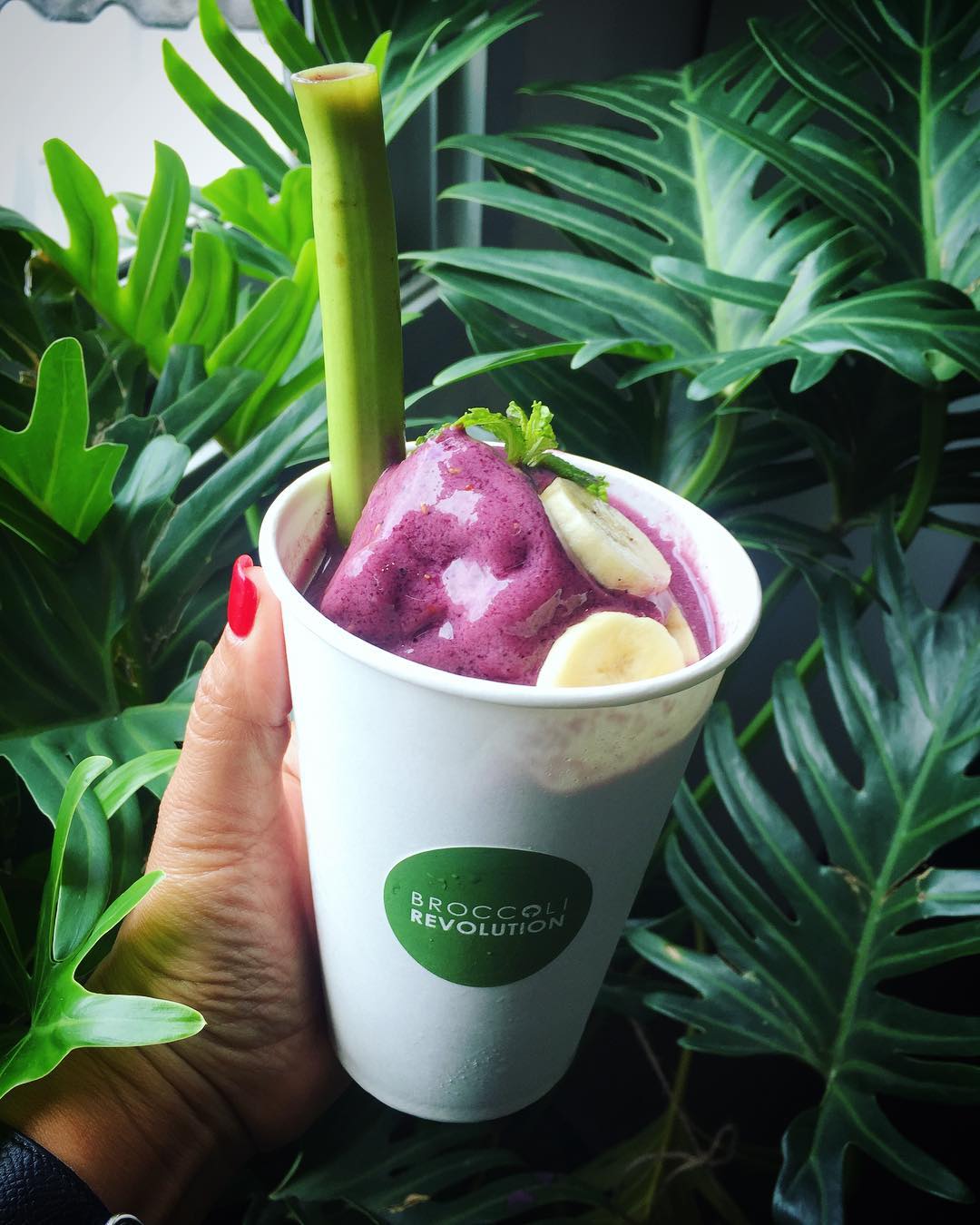 Photo from @broccolirevolution
Photo from @broccolirevolution
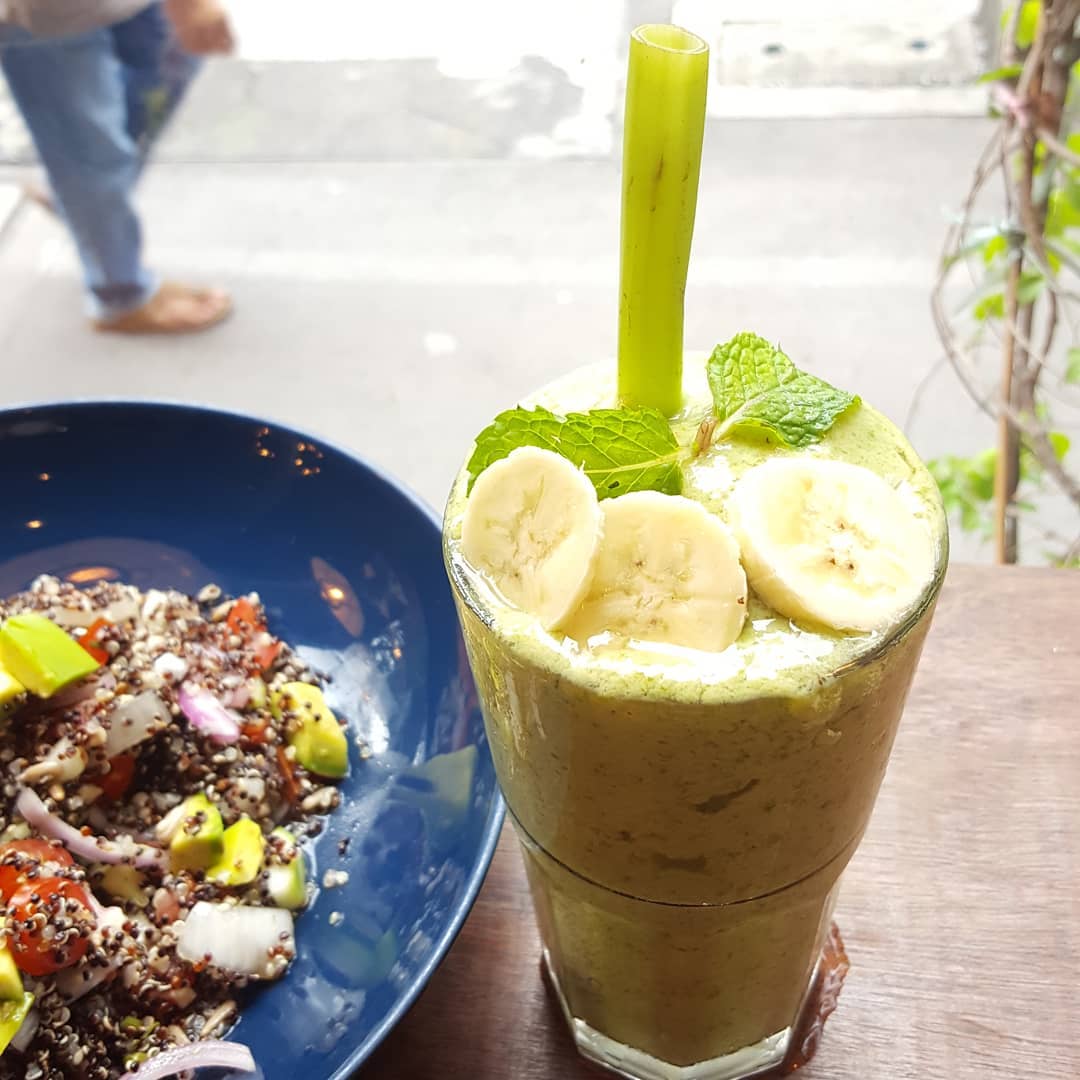 Photo from @anniken_cg
Photo from @anniken_cg
You can even use it with your coffee.
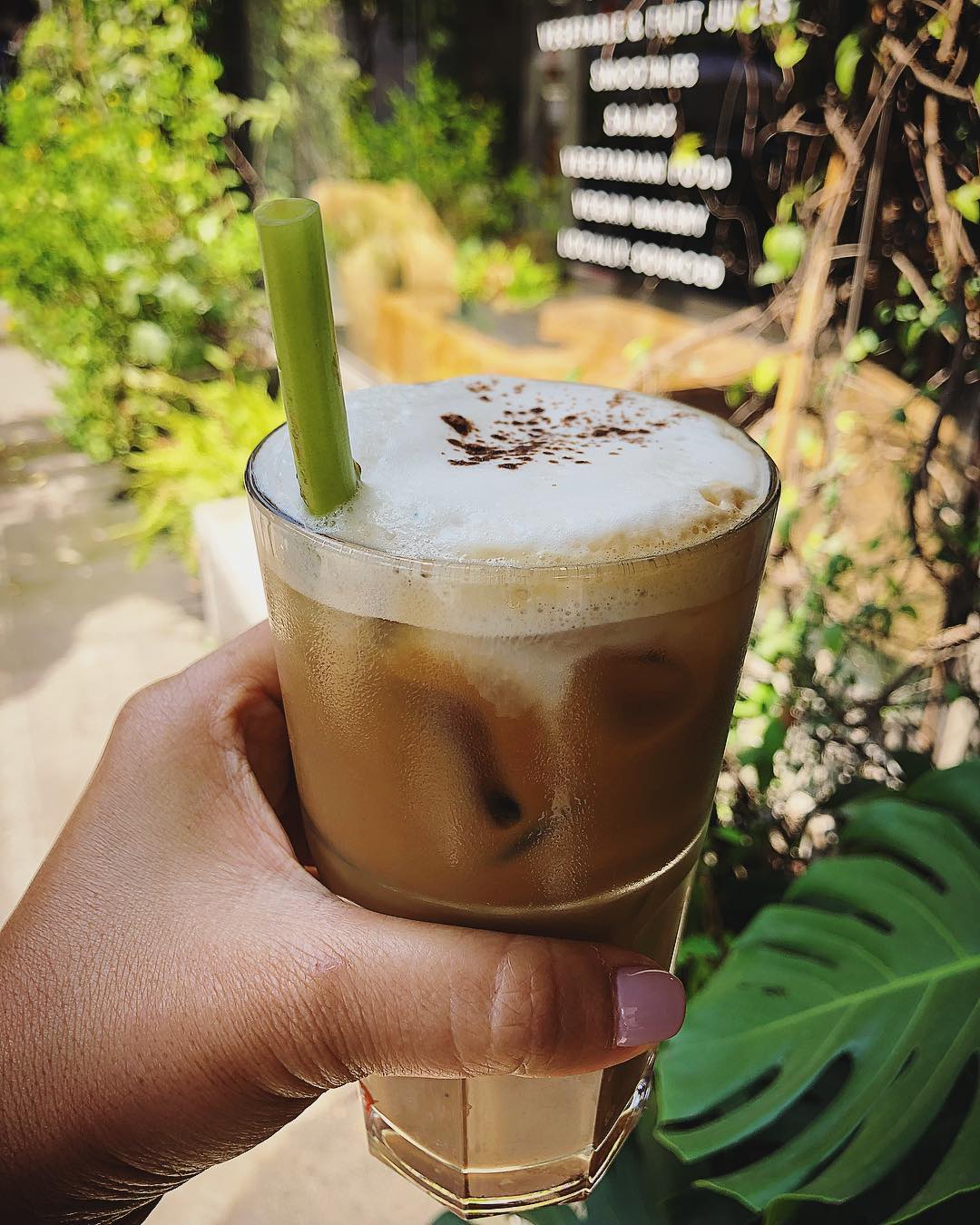 Photo from @broccolirevolution
Photo from @broccolirevolution
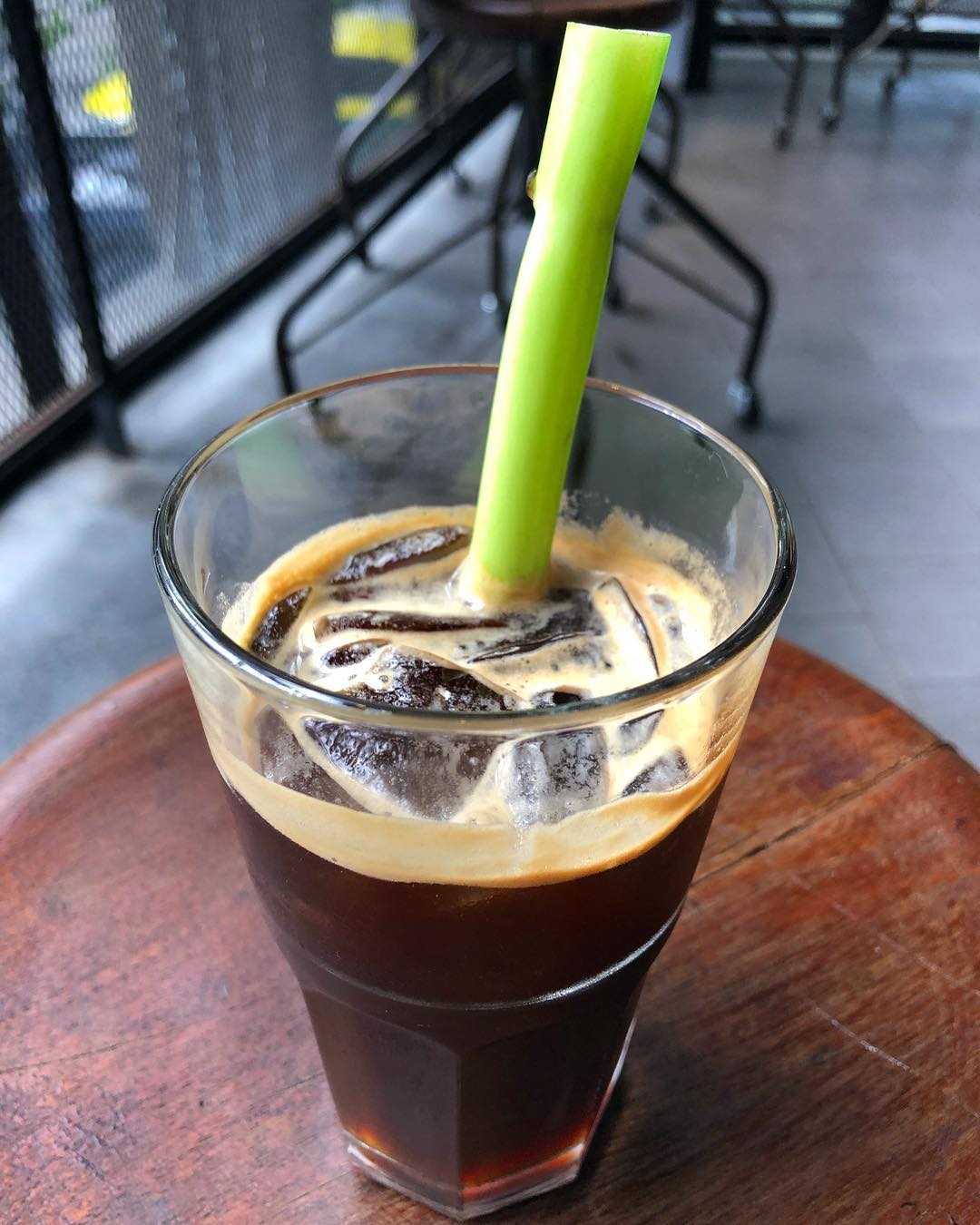 Photo from @broccolirevolution
Photo from @broccolirevolution
The straw is a snack
Since the kangkong straws are edible, once done sucking with them, diners can simply crunch on them like a snack.
Those who aren't fans of kangkong have nothing to worry about. The straws are biodegradable when discarded.
Aside from the kangkong straws, diners at Broccoli Revolution can also purchase reusable metal, glass and bamboo straws, along with straw cleaners.
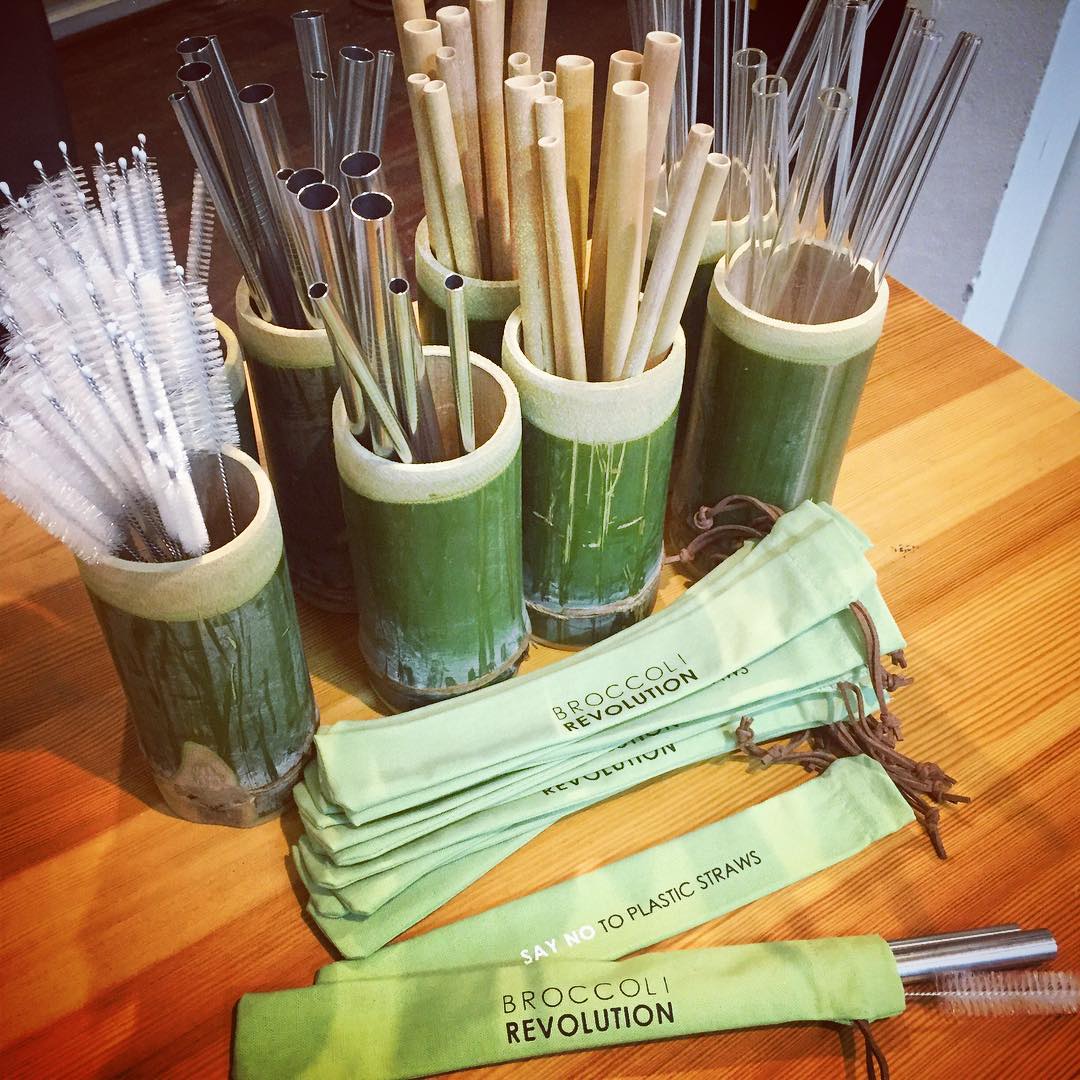 Photo from @broccolirevolution
Photo from @broccolirevolution
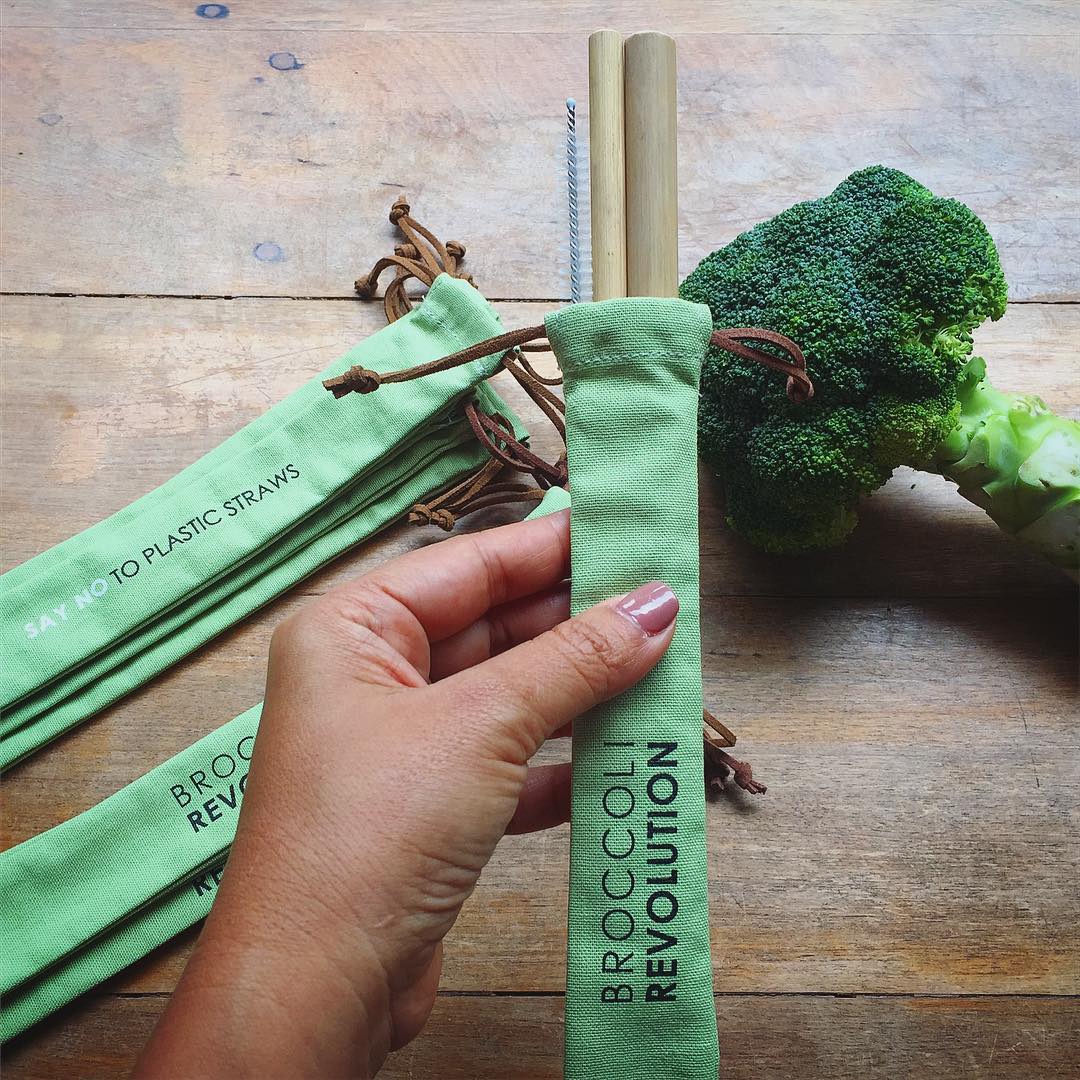 Photo from @broccolirevolution
Photo from @broccolirevolution
Plastic problem
The restaurant reportedly obtains the kangkong for its straws from local markets.
However, eco-friendly alternatives to everyday products often cost more.
The restaurant's kangkong straw costs 3 baht (S$0.13) per straw, while an average plastic straw costs around S$0.007.
That's 18 times cheaper than a kangkong straw.
With the convenience of single-use plastics and its economical price, it's no wonder that plastics are ubiquitous.
Thailand is one of the world's biggest plastic polluters, alongside China, Philippines, Indonesia and Vietnam, a 2017 report by the Ocean Conservancy found.
However, the Thai government has introduced legislation to ban single-use plastics such as straws and cups in 2022, reported the Bangkok Post.
Green dining
Broccoli Revolution still seems to be ahead of the game.
As the restaurant focuses mainly on green initiatives, the extra cost of the kangkong straws is negligible, the co-owner, Saks Rouypirom, told Coconuts.
Other than very sustainable drinking options, Broccoli Revolution also boasts chic interiors, with plants decorating the walls of the restaurant.
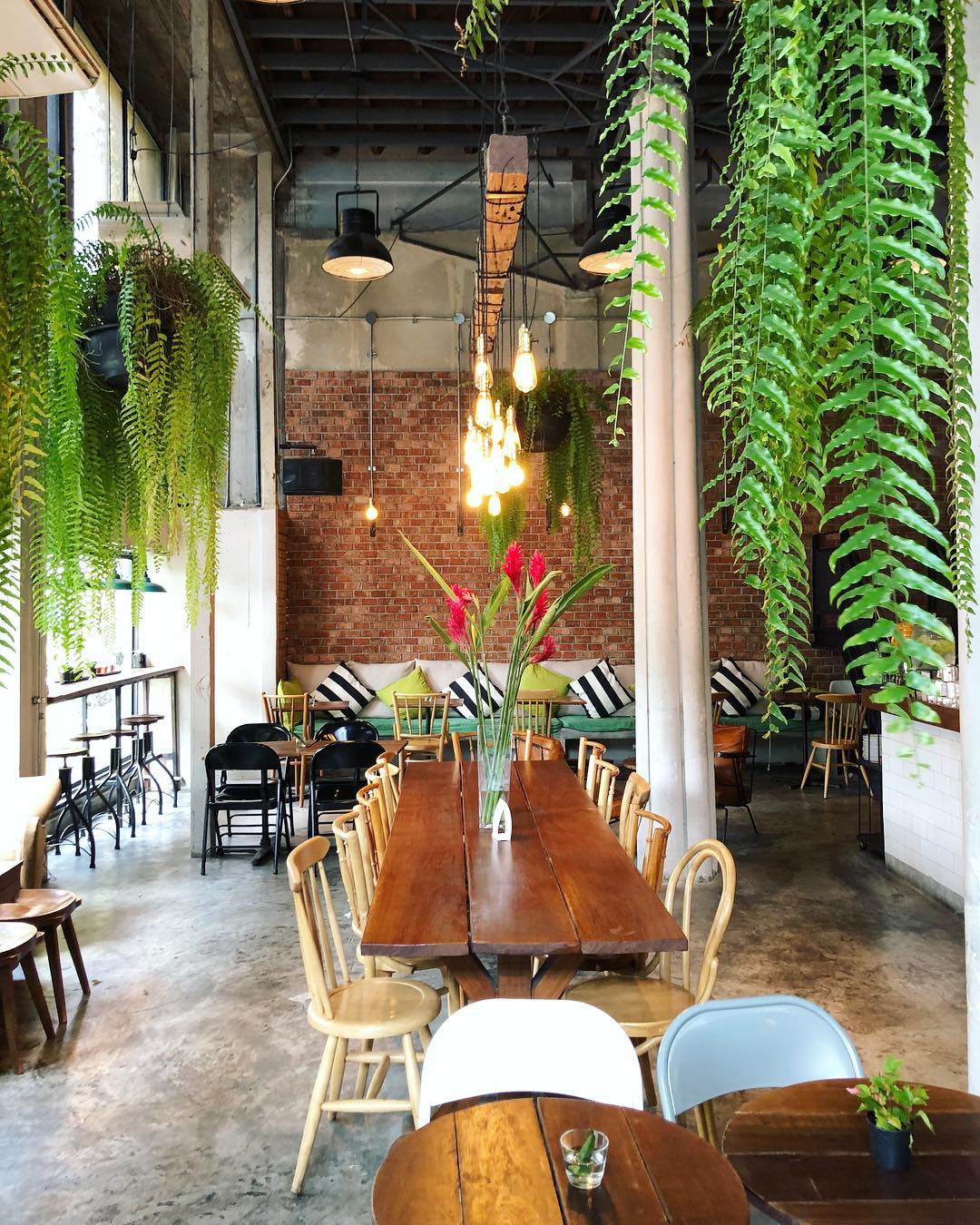 Photo from @broccolirevolution
Photo from @broccolirevolution
Acai bowls and other healthy, vegan food are also on the menu.
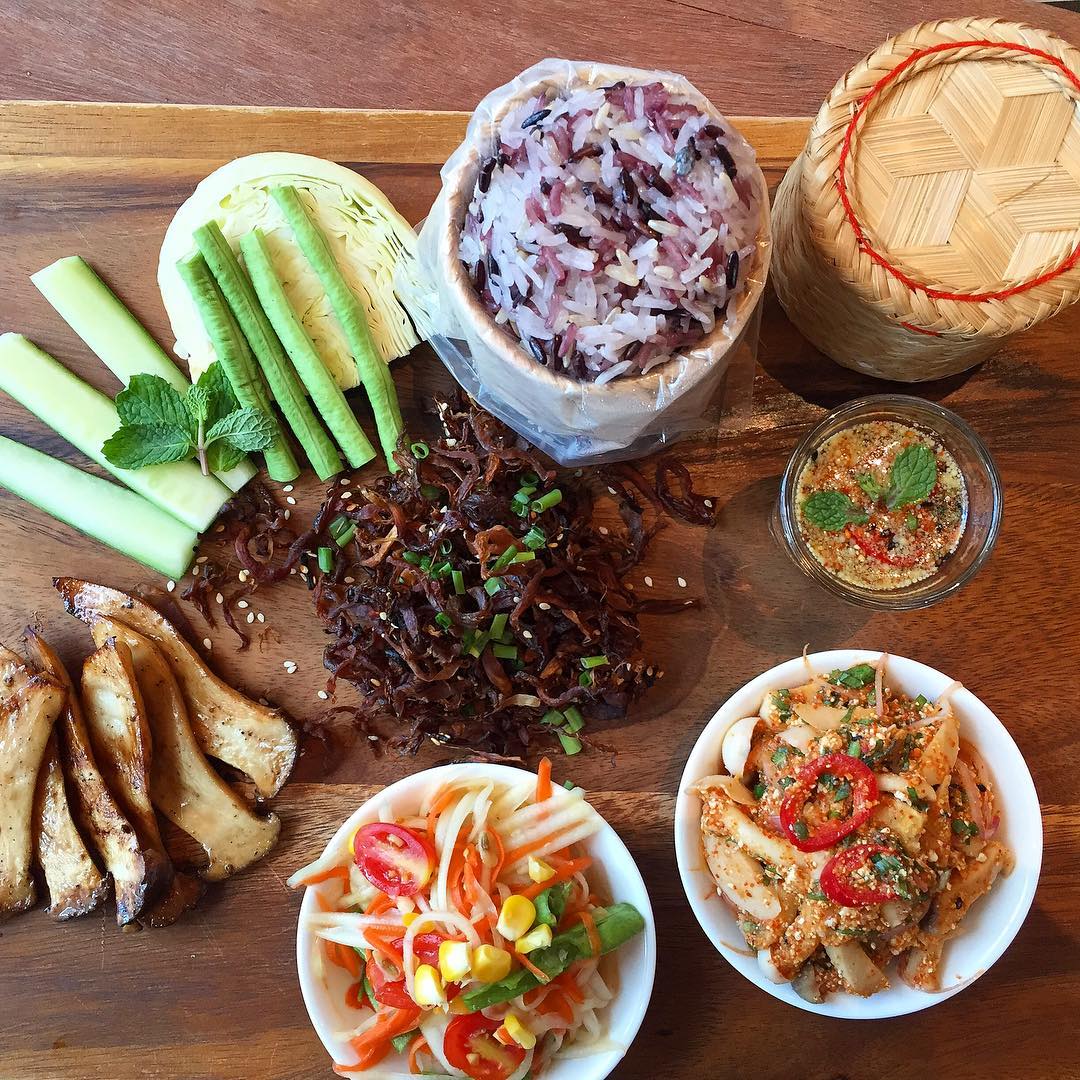 Photo from @broccolirevolution
Photo from @broccolirevolution
If you happen to be in Bangkok, Thailand, perhaps you can take some time out of your itinerary to pop by, and try out their kangkong straws as well.
Address: 899 Sukhumvit Road, Soi 49 Klongton-nua, Vaddhana, Bangkok, Thailand
Opening hours: 9am - 10pm, every day
Top photo by @broccolirevolution, Instagram and Bernard Wee, Flickr.
If you like what you read, follow us on Facebook, Instagram, Twitter and Telegram to get the latest updates.
